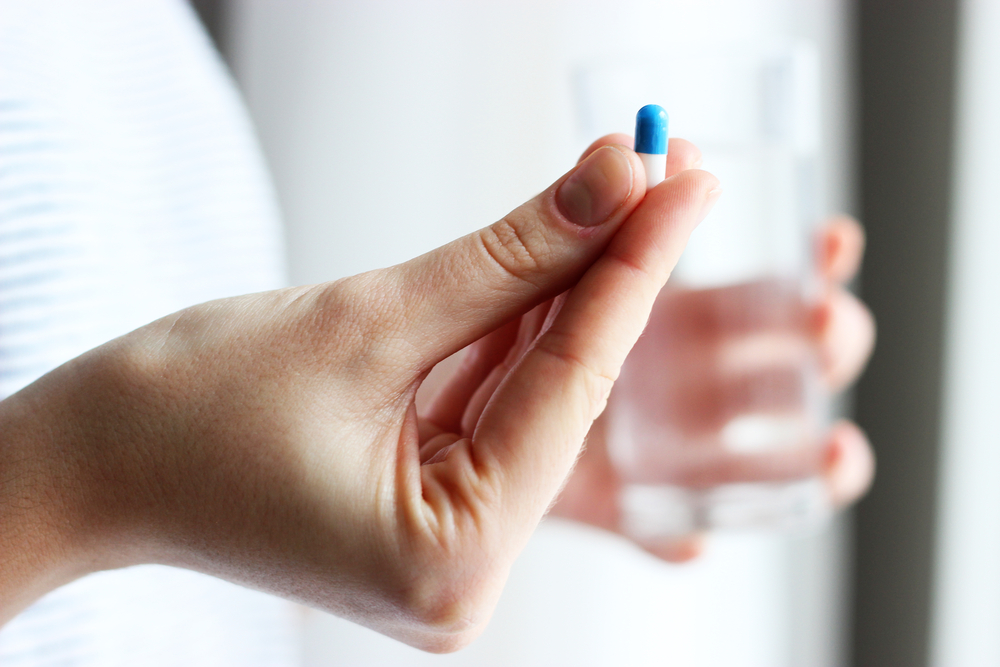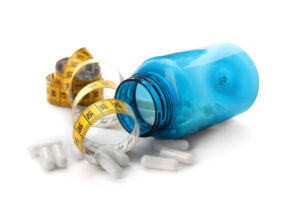If you were recently diagnosed with attention deficit hyperactivity disorder (ADHD), you or your healthcare provider may be considering stimulants as a way to treat your symptoms. The term “stimulants” can be confusing, especially because this class of drugs has the opposite effect on people with ADHD, often working to mitigate overactive or impulsive behaviors.
In this article, we will take a deeper look into how stimulants effectively treat ADHD by calming hyperactive symptoms. In addition,we’ll discuss the specific medications and their safety profiles, including potential side effects, drug interactions, and warnings associated with taking a stimulant.
If you are looking for an effective way to treat your ADHD, stimulants could be the right solution for you. Klarity will connect you with a licensed healthcare provider who can create a personalized treatment plan for you, which can include prescription stimulants, to effectively treat your ADHD symptoms.
Find a provider, and in just 48 hours, you could receive an evaluation and personalized treatment to manage your ADHD.
How Neurotransmitters in Our Brains Work
Neurotransmitters are chemical messengers that help facilitate communication within the complex signaling pathways of the brain. They act as a messaging system by carrying the signal from one neuron to another and are responsible for proper functioning within the brain and nervous system.
Neurons are not in direct contact with each other and require neurotransmitters to help bridge this gap in communication. The small area between the two neurons is referred to as the synapse, and this is where the neurotransmitters are released from one neuron and travel to the other. This is where they bind to receptors on the adjacent neuron, which continues the given signal down the pathway.
There are a number of different types of neurotransmitters, and each has unique properties that influence the neurons to behave differently. There are three main classifications of neurotransmitters, which include excitatory, inhibitory, and modulatory.
When bound to the receptors of the neuron, the different neurotransmitters will work by either stimulating the firing of the neuron or, in contrast, inhibiting the action potential from firing. In addition, modulating neurotransmitters helps to enhance the excitatory or inhibitory response, although they do not directly bind to the receptors.
How Stimulants Work
In ADHD patients, it is believed that there are lower levels of the neurotransmitters dopamine and norepinephrine, resulting in under-stimulation and reduced activity in certain regions of the brain that contribute to impulse, decision-making, and maintaining attention.
Stimulant medications work by increasing the two depleted neurotransmitters found in ADHD patients: dopamine and norepinephrine. Stimulants increase neurotransmission between neurons, improving the chemical messaging system within the brain.
Types of Stimulants
There are two common types of stimulants: Methylphenidate and Amphetamine. Both prescription stimulants are considered the first line of treatment for ADHD in both children and adults. Although they belong to the same class of medications, there are some key differences between the two.
Methylphenidate
Methylphenidate medications include Ritalin and Concerta, brand-name drugs. This type of stimulant works by blocking the reuptake of dopamine. In doing so, dopamine is able to remain in the synapse for a longer period of time, resulting in more activation of the receiving neuron.
Amphetamine
Amphetamines are available in name brands such as Adderall and Vyvanse. Like methylphenidates, amphetamines work by blocking the reuptake of dopamine, causing increased activation of the adjacent neuron. In addition, amphetamines stimulate the release of dopamine and norepinephrine from the neuron as well, causing a larger concentration of both dopamine and norepinephrine in the synapse.
Ready for the next step in your mental health journey? Book an appointment with a licensed provider on Klarity today.
Stimulants and ADHD
Attention deficit hyperactivity disorder (ADHD) is one of the most commonly diagnosed neurodevelopmental disorders diagnosed in children and adults. Those who struggle with ADHD will have difficulty concentrating and will often display hyperactive or impulsive behaviors. It is believed that ADHD patients have lower levels of dopamine and norepinephrine in the brain.
Stimulant medications are primarily for the treatment of ADHD due to their calming effect on hyperactive symptoms. Stimulants increase attention, cognitive ability, organization, and listening skills. This medication class increases dopamine and norepinephrine levels in the brain, the two neurotransmitters lowered in ADHD patients.
It is important to understand that stimulant medications will not cure ADHD. While you will likely experience relief from your hyperactive symptoms or impulsive behaviors, the symptoms will return if you stop taking ADHD medication. Stimulants are an effective way of managing ADHD symptoms, but you should also work to make lifestyle changes to avoid dependence.
Additionally, your body’s reaction to stimulant medications will be unique, as each brain responds differently to treatment. For this reason, you should always work closely with a healthcare provider to monitor your condition and adjust your dosage as necessary. For your safety, you should never attempt to self-medicate.
Potential Side Effects of Stimulants
Stimulants have a number of potential adverse effects that may occur right when starting the medication or with long-term use. Each patient’s reaction to medication is different, and some factors that influence the side effects include body weight, the dose prescribed, and tolerance to the medication.
Some common side effects include:
- Anxiety or nervousness
- Decreased appetite leading to weight loss
- Difficulty falling asleep
- Headaches
- Psychological phenomena such as psychosis, paranoia
- Sweating, shortness of breath
- Palpitations, chest pain, increased heart rate, and high blood pressure
- Irregular heartbeat
- Seizure
Warnings of Stimulants
Stimulant medications have been associated with a few serious and even potentially life-threatening side effects with use, including:
- Seizures
- Irregular heart rhythm
- Stroke
- Sudden cardiac death
Chances of experiencing these side effects increases if the medication is misused, leading to dependency.
Dependency warning: Stimulants are classified as Schedule II controlled substances due to their high potential for abuse, according to the DEA. Abuse of these drugs can have harmful effects on the central nervous system (CNS), and may result in serious side effects, which include increased heart rate, elevated blood pressure, and heightened alertness. Examples of these medications include Adderall, Ritalin, and Vyvanse.
Prescribing Schedule II stimulants comes with restrictions to prevent abuse, such as limiting prescriptions to 30-day supplies. Patients with a history of alcohol or substance abuse should generally avoid these medications. It is important to use them as prescribed and communicate openly with healthcare providers to monitor for dependency and adverse effects.
Drug Interaction
Before you are prescribed a new medication by your healthcare provider, it is important to discuss what medications you are currently taking, including supplements and over-the-counter medications.
As with most medications, there are some medications that should be avoided with the use of stimulants due to changes in effectiveness with contaminated use. These medications include:
- Anticoagulants, exaggerated cardiovascular effects
- Chlorpromazine, an antipsychotic
- Phenytoin, decreased absorption
- MAO inhibitors: linezolid, metaxalone, methylene blue isocarboxazid
- Avoid other stimulant medications, including weight loss medications
- Increased risk of serotonin syndrome with SSRI medications or street drugs like MDMA or “ecstasy,” St. John’s wort
Receive a Prescription for Stimulants With Klarity
If you have ADHD, stimulants may effectively relieve your symptoms. Klarity has helped thousands of Americans access fast and convenient online ADHD treatment that includes prescription medications (if applicable) like stimulants, right from their homes. No insurance coverage is required to begin affordable telehealth appointments, and your provider can help you determine which stimulant, if any, is right for your unique symptoms.
Schedule an appointment with a licensed healthcare provider on Klarity today.







